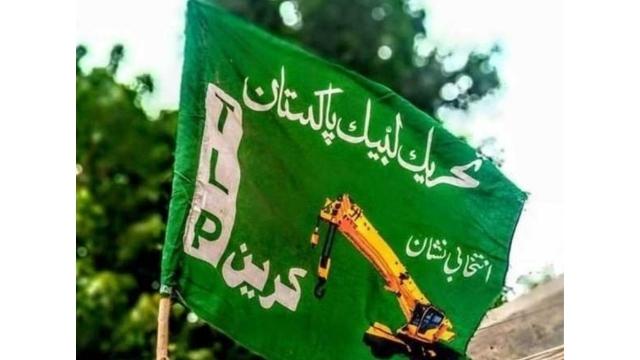The ideas of Rizvi’s party are not traditional Islamic fundamentalism. Yet they are extremist and violent.
by Massimo Introvigne
Article 5 of 7. Read article 1, article 2, article 3, and article 4.


Before continuing our history of Tehreek-e-Labbaik Pakistan, we should pause and ask the question what ideology this party born within the Barelvi Sufi movement propagates.
Foreign observers often classify its ideas as part of “Islamic fundamentalism,” but this may be more or less accurate depending on how the notion is defined. If “fundamentalism” is an idealtype including all ideologies where political action is derived from theology without mediations, then we can call Tehreek-e-Labbaik Pakistan a “fundamentalist” Islamic party, indeed the largest such party in Pakistan based on the results of the 2018 elections.
However, scholars of Islam normally use “Islamic fundamentalism” in a narrow sense, to identify a movement that proceeds from Wahhabi roots in the Arabian peninsula, adds modern political theory to conservative theology, and organizes itself through mass movements and political parties in the 20th century. The ideology of fundamentalism mythologizes early Islam, and rejects what it sees as the innovations of subsequent centuries. Although there have been fundamentalist leaders with a Sufi background, their Wahhabi roots lead many fundamentalists to look with suspicion at the practices of popular Sufism.
In Pakistan, the traditional fundamentalist parties were mostly supported by the rivals of the Barelvi, the Deobandi and Ahl-i-Hadith movements, although to complicate the situation the Deobandi also criticized the Islamic thinker who was most influential on Pakistani fundamentalism, Abul A’la Maududi (1903–1979), regarding him as an amateur theologian who politicized Islam.
Assuming “Islamic fundamentalism” in this second, more technical meaning, the Barelvi are not part of the fundamentalist movement and have historical quarrels with it that have led to bloody confrontations. Tehreek-e-Labbaik Pakistan, although not supported by all Sufi masters (Pir), and criticized even by some Barelvi theologians, is a Barelvi and Sufi movement.
As such, it understands that a Sufi organization that incites to street violence and riots and glorifies homicide, as in the case of Mumtaz Qadri’s assassination of Salman Taseer and of crimes targeting the Ahmadis, may appear a contradiction, if compared to the popular image of Sufism as a pacific and non-violent movement.


Tehreek-e-Labbaik Pakistan’s founder, Khadim Husain Rizvi, was well aware of the problem. He wrote that, “Today people are spreading nonsense in the name of Sufism, they believe a Sufi is a person who always propagates love, avoids conflicts, and ignores wrong practices. No, a ‘real’ Sufi cannot tolerate an enemy of the Prophet (Peace be upon Him) on this earth. A real Sufi neither preaches peace all the time nor renders services to the United States of America” (I was directed to this and other useful passages of Rizvi by a useful article by Arslan Ahmed and Bilal Zafar Ranjha on “Salafising Barelwiyat” published in 2020 in the University of Punjab’s Journal of Research in Humanities, vol. 56-2, 139–64).
Rizvi politicized the issue of Sufism, claiming that the image of the peaceful and non-violent Sufi was promoted throughout the world by American intelligence. “In the disguise of terrorism and extremism, he wrote, they are waging war against Islam. They want us to bring a moderate version of Islam, which does not carry the teachings of jihad. Muslims of the whole world are under attack, and some are preaching peace in the name of Sufism.”
This was not the only way Americans were corrupting Pakistanis in general and the Barelvi community in particular. Rizvi was particularly incensed by the fact that young Barelvi boys gave to girls flowers and gifts on Valentine Day. He explained that “Anyone who observes western events or celebrates Valentine Day is a cursed person. Likewise, anyone who sells, buys and exchange flowers/gifts on Valentine Day, is a reprobate. They are all transgressing the limits of Islam and are illegitimate children [of Islam]. If you have enough money and time, help poor people, read Quran, send salutations to Prophet Muhammad (Peace be upon Him), and serve your parents on Valentine Day.”


Not that America was the only superpower to be cursed. Not without some good reasons, Rizvi regarded as a scandal that, for political motivations, Pakistani politicians and other leaders of Islamic countries remained silent on China’s genocide of Muslim Uyghurs and other Turkic people in Xinjiang, and even openly sided with the Chinese atheists.
Later, when COVID-19 erupted in China (and shortly before he died), Rizvi interpreted the epidemic as Allah’s punishment of the Chinese Communist Party. “The Chinese had made two million Muslims captive, Rizvi said, now look at China; it is suffering from God’s wrath. They do not accept the existence of God and forced millions of Muslims to eat pig and drink alcohol … O Allah, excruciate them and excruciate their friends as well.”
For Rizvi, a Sufi is a Muslim specially attached to the honor and the glory of the Prophet. When they are offended or put at risk, Sufis, because of the inner strength they have gained from their mystical experiences, may and should be the first to take to the streets and punish the offenders. Actually, it is preferable that the state punishes the blasphemers. However, if the state does not act, Sufis should both persuade it to do so through street demonstrations, resorting also to violence when needed, and take the law in their own hands and expel or kill the blasphemers. The case of Asia Bibi, to which we will return in the next article, was a clear application of the principles Tehreek-e-Labbaik Pakistan was teaching.









